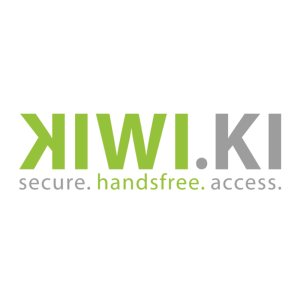Finalist |KIWI.KI (Germany) - Connecting cities by making the physical key obsolte
 KIWI is a handsfree access-as-a-service infrastructure for apartment buildings providing efficiency gains for the real estate industry and true convenience for residents. KIWI makes the physical key obsolete and connects cities by connecting every front door. We talked to Dr.-Ing. Christian Bogatu, Managing Director Product, Sales & Marketing of KIWI about his solution.
KIWI is a handsfree access-as-a-service infrastructure for apartment buildings providing efficiency gains for the real estate industry and true convenience for residents. KIWI makes the physical key obsolete and connects cities by connecting every front door. We talked to Dr.-Ing. Christian Bogatu, Managing Director Product, Sales & Marketing of KIWI about his solution.
For more information visit: CODE_n CONNECTWebsiteTwitter
Where did your idea for the company come from?
Christian Bogatu (KIWI.KI): The idea for KIWI actually came from our co-founder Claudia Nagel. Standing in front of her door one day, hands full of shopping and the kids at her side, she was wondering why she still has to use physical keys these days. When she then spotted mail men and garbage collectors with their huge key chains, she realized that a more intelligent solution to deal with all the key hassle could actually be quite successful. That’s how the idea for KIWI was born.
For which kind of audience is your product or service intended and what problem is it solving?
Christian Bogatu (KIWI.KI): KIWI.KI builds a citywide IoT infrastructure based on KIWI – secure, hands-free access-as-a-service for apartment buildings. For our business customers, access is at the core of their daily activities. Package delivery, waste management, and other service providers need to gain entry in order to do their jobs. This necessitates a huge headache of physical key management. With KIWI installed, it’s simple: A single “Ki” opens all authorized doors and management is done centrally and securely. The private residents, on their part, enjoy the safety and convenience of hands-free access with KIWI. But there are even more potential user groups like rescue services or in the field of ambient assisted living. For example, the Berlin fire brigade has already been using KIWI in a pilot project since December 2014.
Tell us a bit about the company’s founders like their professional or industry background and the origins of the founding idea.
Christian Bogatu (KIWI.KI): Prior to KIWI.KI, Claudia Nagel had worked as a consultant and project manager with McKinsey for nine years. Her focus lay in the travel, transport and logistics sector and she has detailed expertise in the design and optimization of production networks. At McKinsey, Claudia and I got to know each other. I was immediately excited when Claudia told me about her idea of hands-free access at the end of 2011. Prior to McKinsey, I had co-founded the container security company Kirsen Global Security. Kirsen is the provider of an exclusive, premium container monitoring solution for DB Schenker. So I am well-experienced in security, transport and logistics as well. Peter Dietrich had worked as a headhunter at Kienbaum and Heidrick & Struggles before he became sales director for Enterprise Finance Europe at the Bank of Ireland Group. Peter had already invested in Kirsen and was immediately up for becoming a co-founder at KIWI.KI.
Have you ever been confronted with concerns about security? If so, how do you deal with these concerns? And have you got different feedback on your solution from the target group (real estate industry vs. residents)?
Christian Bogatu (KIWI.KI): Actually, dealing with security concerns is an inherent part of our daily interactions with customers, partners and the media. That is for example why KIWI was developed in collaboration with cryptographic experts from the very beginning. Of course, we wouldn’t want to enter the market with a solution that is not a state-of-the-art product. The encrypted radio signal between our “Ki” transponder and the door sensor has even been filed for patent. Another big issue is a struggle with the 4000-year-old habit of using physical keys and the belief that this is the most secure way to open doors. When you lose your keys, they can be used by anyone who finds them. Nowadays, a key can even be reproduced with a 3-D printer on the basis of a simple photograph. Hackers already actually did this a few years ago. But when you use KIWI and your Ki gets lost, it can be immediately deactivated via the personal user account in our app or through an authorized call to our hotline.






Write a comment